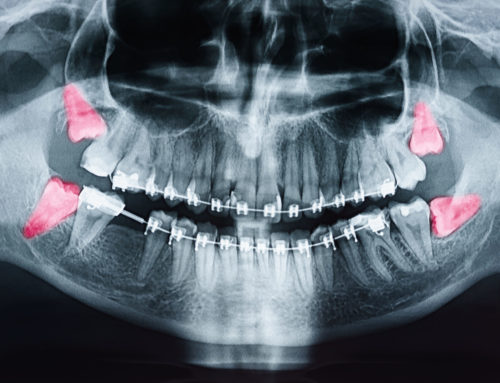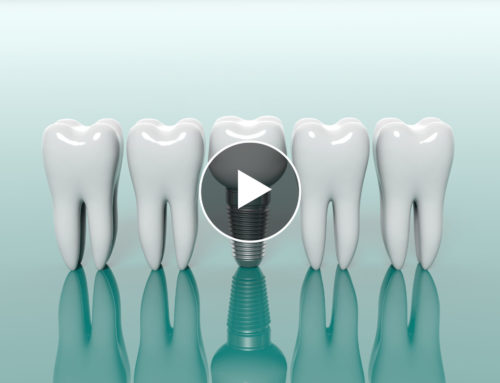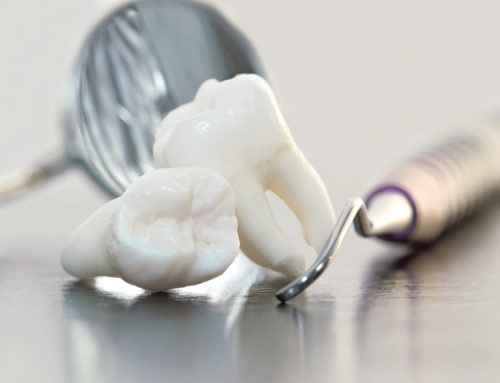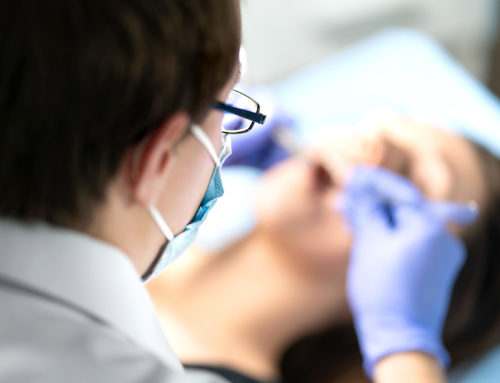Oral pathology focuses on the diagnosis and treatment of oral cancer and diseases affecting the maxillofacial and oral regions. Therefore, this discipline assesses the causes and effects of the diseases that can occur in the mouth and jaw. Specialists in this field conduct extensive research and diagnoses using various types of examinations. Such exams include microscopic, clinical, biochemical and radiographic examinations.
Since April is Oral Cancer Awareness Month1, the oral physicians of OMSH have provided important facts that everyone should know.
Alarming Statistics2
Each year, in the United States alone, over 50,000 patients receive a diagnosis pertaining to various forms of oral cancer.
Demographics
-
- Unfortunately, studies show that men are at risk twice as much as women.
- People who are 40 years of age and older are also at greater risk.
- Patients who develop the HPV-16 virus and didn’t have treatment are also at risk.
-
-
- And patients who have had a previous diagnosis of oropharyngeal cancer. The chance of developing other tumors appears to be 20 times more likely.
-
Lifestyle Choices
Most Americans already know that smoking, snuff, and chewing tobacco, as well as heavy alcohol drinking greatly increases one’s risk. However, here are some troublesome facts.
-
- Using Tobacco Products – 80% of people who smoke, use snuff, and/or chewing tobacco obtain an oropharyngeal cancer diagnosis.
- How long and how often you use tobacco products in any combination impacts the likelihood of your developing oral cancer.
- Drinking Alcohol – At the same time, 70% of people who receive a diagnosis of oropharyngeal cancer are heavy drinkers.
- Unfortunately, your risk of developing oropharyngeal cancer increases by 100% when you regularly drink and smoke.

Symptoms & Symptoms of Oral Cancer
Particular symptoms may come in different forms and can vary from one person to another. That’s why it’s vital that you conduct regular oropharyngeal (mouth, jaw, throat) or oral cancer screenings. Furthermore, you should contact a dental practitioner early if any of the following signs appear:
- Dramatic weight loss due to a severe loss of appetite and pain whenever you eat
- The appearance of unusual and/or painful sores, lesions, raised areas bumps and ridges on your gums, around tooth sockets, around and/or under your tongue, and on the roof of your mouth
- Red, black or purple, white, or dark yellow-colored lesions anywhere in your mouth
- Loose teeth or sudden breaks and cracks in your teeth
- Lumps in your neck, especially if they’re near the jawline and under your chin
- Bleeding from your mouth, whether you are brushing your teeth or not
- A sore throat that will not go away
- Unusual tongue pain and/or painful gums
- Pain or difficulty swallowing
Current Treatment Options
Oral physicians can opt for the best treatment options based on a number of factors, including your health status. Also, they will look at the type and stage of cancer you may be in. The options available to patients include surgery, radiation therapy, chemotherapy, proton therapy, immunotherapy, and targeted therapy.
In fact, surgery is the most common treatment for the majority of oral cancer patients. They design surgical procedures to help eliminate and stop further growth of cancer cells in the mouth. In some cases, the oral maxillofacial surgeon may have to remove any lymph nodes with cancer cells. Pathologists help surgeons make informed decisions by examining tissues to ensure that no cancer cells remain in the mouth. Some patients may also have to undergo plastic surgery to reconstruct the affected site.
Radiation therapy is often another option that oral physicians use in combination with chemotherapy to ensure positive patient outcomes. Proton therapy, on the other hand, provides an effective intervention by delivering high radiation to the affected areas. You’ll typically use chemotherapy to contract tumors, which prove difficult to remove through surgery. Immunotherapy involves the use of cancer medications designed to reveal cancer cells to the immune system.
Seeking the Right Kind of Help
Oral and maxillofacial pathology specialists can handle clinical evaluations and treatments pertaining to oral cancers. Or they may work closely with a pathologist to examine a biopsy. It is important to seek help from these specialists to ensure a proper diagnosis and treatment plan. More than likely, once you’ve seen your dentist, he or she will refer you to a specialist for immediate diagnosis and treatment. Failure to act early can lead to the progression of the disease, thus complicating the treatment process.
If you live in the Houston area, it’s important to connect with OMSH for more information. Call us today at 832-509-4505.
References
- American Association of Oral and Maxillofacial Surgeons (2014, April 27). Raise Oral Cancer Awareness [Online Post]. Retrieved from: https://www.aaoms.org/media/raise-oral-cancer-awareness
- Greenspoint Dental (2017, February 28). What You Need to Know About Oral Cancer: The Latest News [Blog]. Retrieved from: https://greenspointdental.com/need-know-oral-cancer-latest-news/?gclid=EAIaIQobChMIh4mhpKDc4QIVQ9bACh2EjQOUEAAYASAAEgI1nvD_BwE






